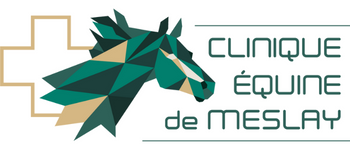COLIC
Horses have a very long digestive tract (small intestine of 25 meters!) and a very large size (colon and caecum of 30 to 40 liters) particularly free in the belly. They are therefore predisposed to digestive pain (colic).
Approximately 90% of colic will be treated medically (kerosene oil, infusion), but in some cases surgery is necessary to save the horse’s life. The small intestine can be twisted, strangulated (by a lipoma for example) or herniated (inguinal in stallions).
Sometimes, a resection of a portion of the intestine is necessary. As the colon is relatively free in the belly, it can move around the cecum or between the spleen and the kidney (nephro-splenic entanglement). Surgery allows for repositioning and emptying. Thanks to the evolution of diagnostic techniques (ultrasound, determination of lactates in the abdominal fluid, etc.), the choice of candidates for surgery is better oriented. The evolution of anesthetic techniques (ventilation, control of hypovolemia and acid-base disorders) has also considerably improved the prognosis of colic, which was once so dreaded.
UMBILICAL HERNIA
Foals often have hernias in the umbilicus. These usually recede in the first months of the foal. However, if they persist or are large, surgery is recommended to prevent small bowel herniations which can be catastrophic.


